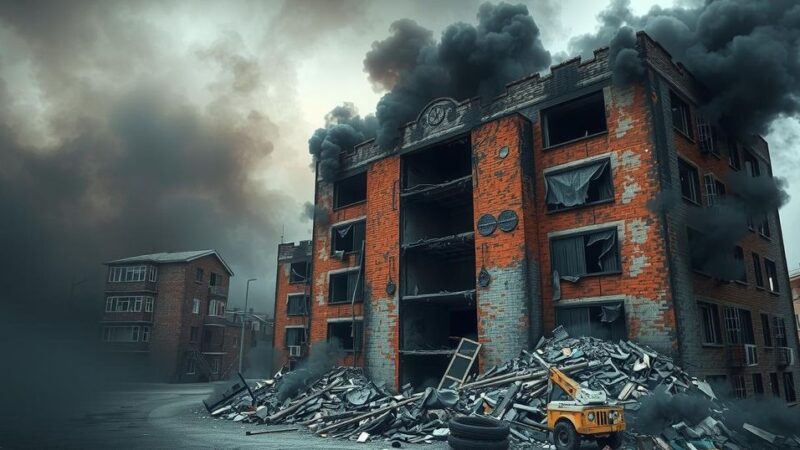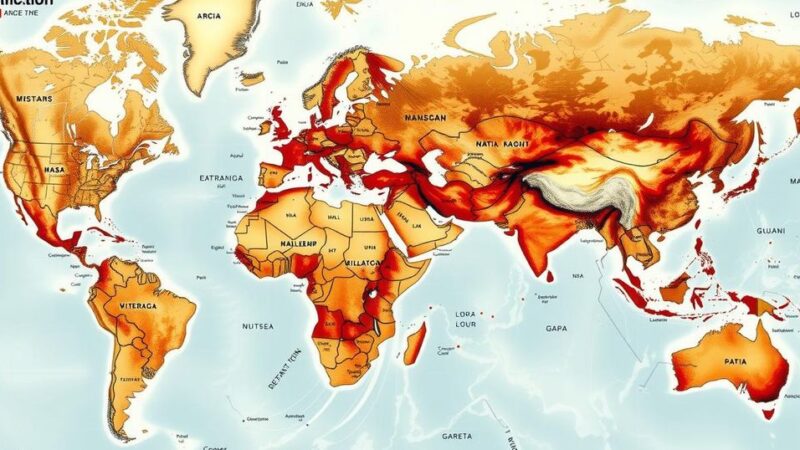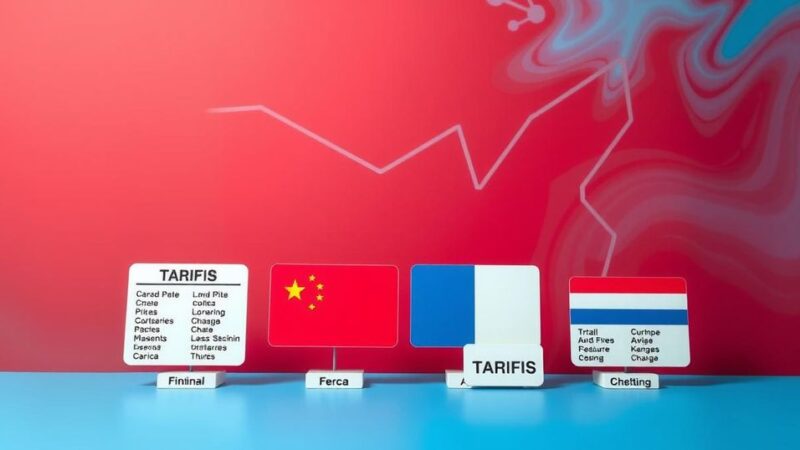The recent U.S. and Israeli military actions against Iranian proxies in Yemen and Gaza have confounded Iran’s response strategy. While Iranian officials pursue stronger ties with Russia and China, concerns linger over potential escalations and the implications for its proxy networks. Diplomacy appears to be Iran’s initial approach, though the stability of its alliances remains precarious.
Recent military actions involving U.S. strikes against Iranian-backed Houthis in Yemen and Israeli Defense Forces targeting Hamas in Gaza have left Iran in a precarious position, uncertain about its next course of action. This hesitancy stems from concerns that escalating conflicts may lead to a major confrontation, while Iran’s supreme leader has advised against placing trust in the Trump administration’s initiatives, complicating Tehran’s stance further.
On Monday, Iranian Foreign Minister Abbas Araqchi met with Russian Deputy Foreign Minister Alexander Grushko in Tehran, where they advocated for enhanced bilateral relations and regional stability. The meeting was underscored by Iran’s provision of kamikaze drones to Russia for use in Ukraine. The ministers also discussed joint efforts in nuclear issues during recent talks in China, aimed at safeguarding mutual interests in the international arena and reinforcing the rule of law.
In addition to enhancing ties with Russia and China, Iran aims to alleviate its sanctions and advocate for Islamic causes against the United States and Israel. Amir-Sa’eed Iravani, Iran’s ambassador to the United Nations, emphasized the need for resistance against U.S. aggression, calling attention to provocative remarks from U.S. officials, including President Trump. Iran’s diplomatic approach towards navigating the current military crises indicates a strategic effort to maintain influence.
While Iran seeks to diplomatically address U.S. and Israeli military actions, it faces a dilemma regarding its support for the Houthis and other allied groups. Having invested heavily in these proxies, Iran risks losing significant leverage if its allies falter. The potential collapse of these networks could transform formerly beneficial alliances into burdens, necessitating careful consideration from Tehran regarding future engagements in troubled regions.
In summary, Iran finds itself in a challenging position amid recent U.S. and Israeli strikes, grappling with how to respond without provoking further conflict. The nation is actively pursuing diplomatic ties with Russia and China while attempting to maintain support for its regional allies. However, the threat of losing its proxy influence in Yemen and beyond poses a significant risk to Iran’s strategic objectives, compelling the regime to navigate its diplomatic engagements judiciously.
Original Source: www.jpost.com






